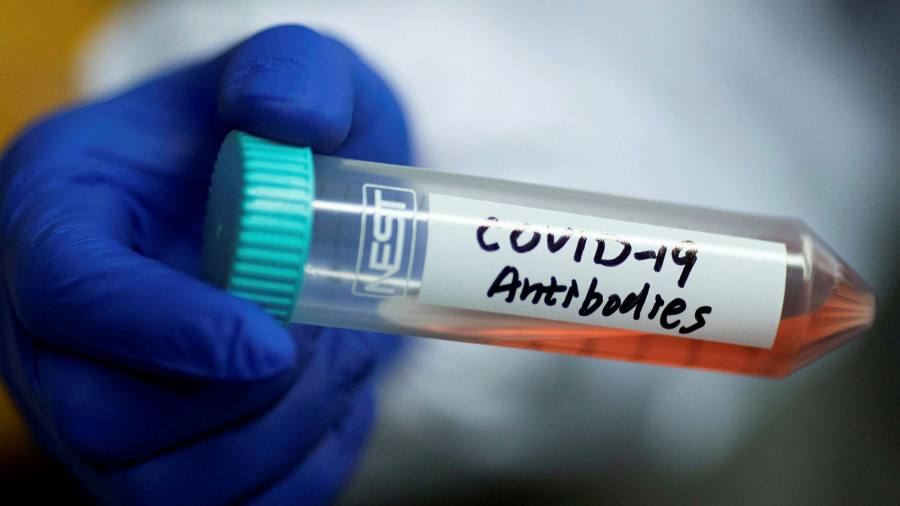[ad_1]
People who have previously had coronavirus are unlikely to be reinfected for at least half a year, according to research published on Wednesday.
The Biobank study, which included more than 20,000 participants, found that antibodies persisted in 99 per cent of people who had previously been infected with Sars-Cov-2 after three months, and in 88 per cent after six months.Â
“We have evidence here that antibodies do persist for at least six months,†said Rory Collins, professor of medicine and epidemiology at the University of Oxford and principal investigator on the study. The 88 per cent figure was a “conservative estimateâ€, as the antibody blood tests the researchers used only looked for a specific antibody and missed other kinds of antibodies and cell memory that could provide immune protection.Â
Prof Collins said the findings did “support the government’s decision to delay the second dose†of the Covid-19 vaccine, as it suggested that significant and long-lasting protection was conferred when high levels of antibodies were elicited.
The study, commissioned by the UK government, found that the proportion of people who had previously been infected with Sars-Cov-2, also known as seroprevalence, rose from 6.6 per cent in June to 8.8 per cent in November.
“While the findings offer some promise, now is not the time for complacency,†cautioned James Bethell, the health minister. “We know people with antibodies may still be able to pass the virus on to others.â€
The study also looked at the proportion of the population that had already had the virus and found substantial variation among different age groups and ethnicities. While 13.5 per cent of people under 30 years of age were found to have antibodies, only 6.7 per cent of those over 70 did.Â
Previous infection was detected in 16.3 per cent of black people who participated in the study, compared with 8.5 per cent of white people.
The prevalence of past infection was also considerably higher in London, at 12.4 per cent, than in other regions of the UK, including South West England, at 5.8 per cent, and Scotland, at 5.5 per cent.
Based on interviews with those who had previously been infected, the researchers found that a quarter of participants were asymptomatic and 40 per cent did not have any “classic†Covid-19 symptoms, including a persistent dry cough, fever or loss of taste or smell.
The Biobank study was consistent with another piece of research conducted by Public Health England, which found that immune protection lasted for at least five months, and that a prior history of Sars-Cov-2 infection was associated with an 83 per cent lower risk of infection.Â
However, it contrasted with findings from the biggest study into seroprevalence in the UK, conducted by Imperial College London and known as React-2, which found that the proportion of people in Britain with antibodies that protect against Covid-19 declined over the summer.
However, Prof Collins pointed to differences in the methodology used by researchers at Imperial, who did not track the same cohort of participants over time.
[ad_2]
Source link





